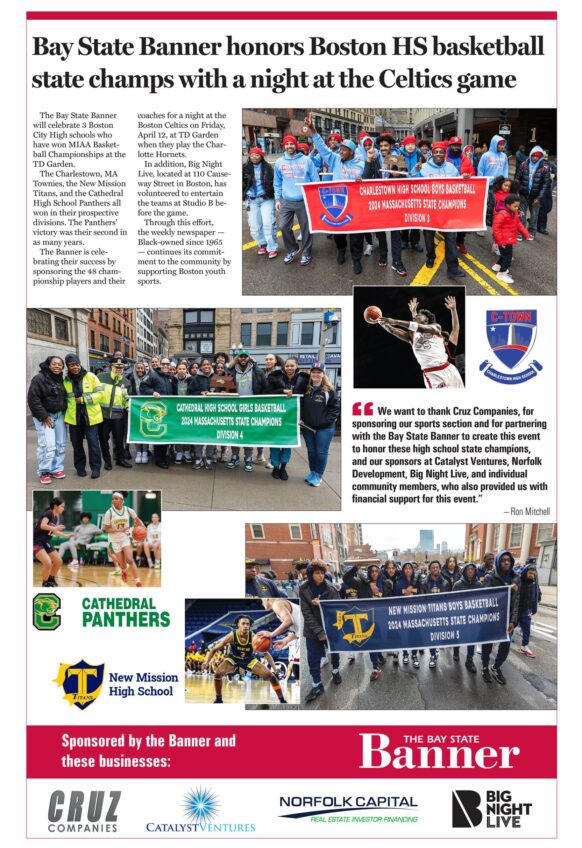Foreclosure activists fight to halt law
Law would limit time to fix wrongful home-loss

A new state law may make it nearly impossible for victims of wrongful foreclosures to regain their homes.
If enacted, An Act Clearing Titles to Foreclosed Properties would drastically reduce the time that victims have to sue to get their property back. It would drop from 20 years down to one or three years, depending on when the foreclosure occurred.
The Massachusetts Alliance Against Predatory Lending — an organization that seeks to delay the law’s implementation — held a meeting at Tent City last week, where attendees shared stories and spoke out against the law. The new deadlines provide far too little time to ready oneself to sue, attendees said.
And once that timeframe is up, the law would essentially make erroneous foreclosures valid, said City Councilor Tito Jackson, who spoke with the Banner by phone.
“Improper procedure carried about by banks [would be] able to be made permanent without actually a court process that determines whether right or wrong has been done in these cases,” Jackson said.
As the curtain was pulled back on the complex maneuverings of the banking industry in the early to late 2000’s, on display was the fact that across the nation, banks were engaging in activities such as home foreclosure despite not actually owning the mortgages. In Massachusetts alone, tens of thousands were affected. Between 2005-2009, approximately 40,000 of the 68,000 foreclosures that occurred in the state were illegal, said Grace Ross, MAAPL co-founder and coordinator.
Time crunch
Under the new law, individuals would have to file suit either within three years of receiving a foreclosure affidavit or one year from this law’s enactment, whichever is later. The result is that going forward, individuals will have three years to file, and many people who have already lost their homes will have only one year.
But it can take much longer for individuals to be ready to sue.
Unraveling the complex handling of mortgages to determine whether or not a foreclosure was legal can be challenging. Similarly, losing a home to foreclosure is an emotionally-wrenching experience that may take years to process, said attendees who had experienced foreclosure.
“It took me nine years before I was even willing to talk about [my foreclosure], let alone look into it,” said Zakiya Alake of the Union of Minority Neighborhoods, who lost her home in the early 2000’s. “I didn’t find the information and support that I needed until two years ago.”
“Twenty years I would say is the minimum you need,” she said.
Supporters of the law say it removes a burden from individuals who bought property without knowing its backstory. These buyers get tied up in ownership debates and cannot move on with refinancing or selling the property.
“Scores of innocent buyers purchased these foreclosed properties, fixing them up, renting them out, etc., but they were unaware of the title defects — only to discover them once they went to refinance and sell,” Richard Vetstein of The Vetstein Law Group and TitleHub Closing Services, LLC wrote on the Massachusetts Real Estate Law Blog. “Title insurance companies have been bogged down trying to solve these defects, and in the meantime, many of these innocent folks are left with homes which cannot be sold or refinanced.”
But opponents say the foreclosure act deprives other innocents of their houses, a loss that goes beyond finance and security. Ross and Jackson pointed to home loss as something takes away a source of familial wealth and legacy that otherwise would pass down to children and grandchildren.
“[Foreclosures] have really sucked up over two generations of wealth in the black community,” Jackson said.
The foreclosure crisis has hit black communities especially hard, because banks aggressively targeted the communities with subprime loans.
Petition to halt the law
Governor Charlie Baker signed the foreclosure act in November, and it was scheduled to go into effect on Dec. 31, 2015. But just one week before this deadline, MAAPL filed a petition to put the matter to statewide ballot — a move that temporarily halts implementation.
MAAPL — which has fought for years against passage of such a law — brought 18 signatures from residents across the commonwealth to the Secretary of State’s office on Dec. 24, exceeding the minimum requirement of ten.
The attorney general’s office currently is reviewing the petition to determine if anything excludes An Act Clearing Titles to Foreclosed Properties from being put to referendum, said Cyndi Roy Gonzalez, attorney general communications director.
If approved to proceed, MAAPL will have to garner 43,167 petition signatures by Feb. 23, Gonzalez said. Doing that will suspend the law until the Nov. 2016 election, when voters will get to have their say.
What happens here in foreclosure policy will have impact nationwide, Ross said.
“The battleground is Massachusetts.”






